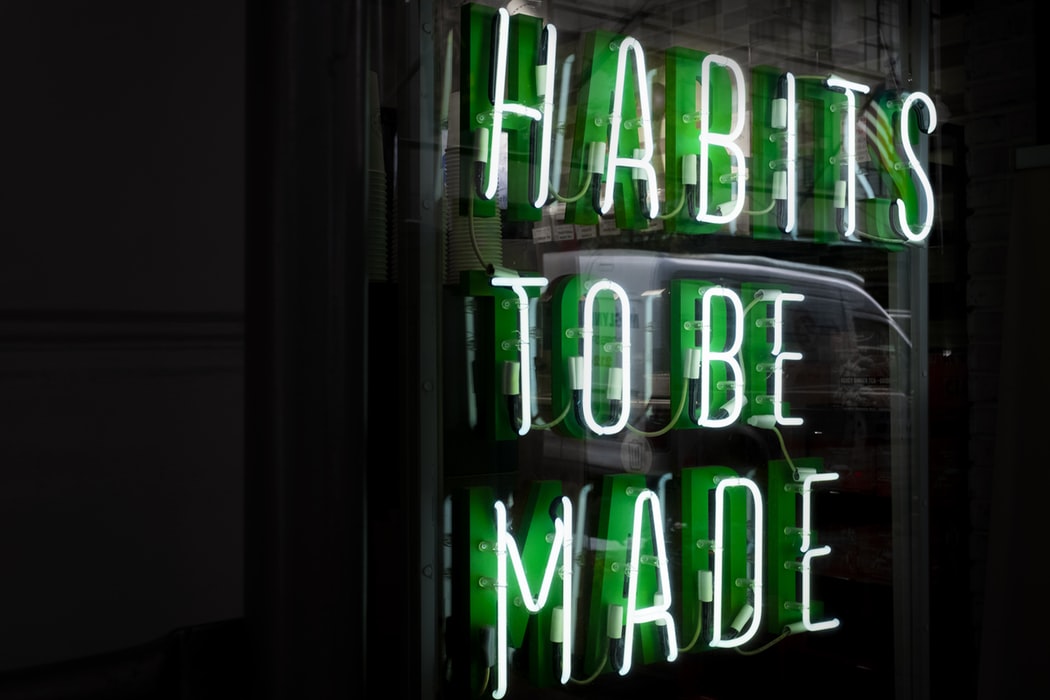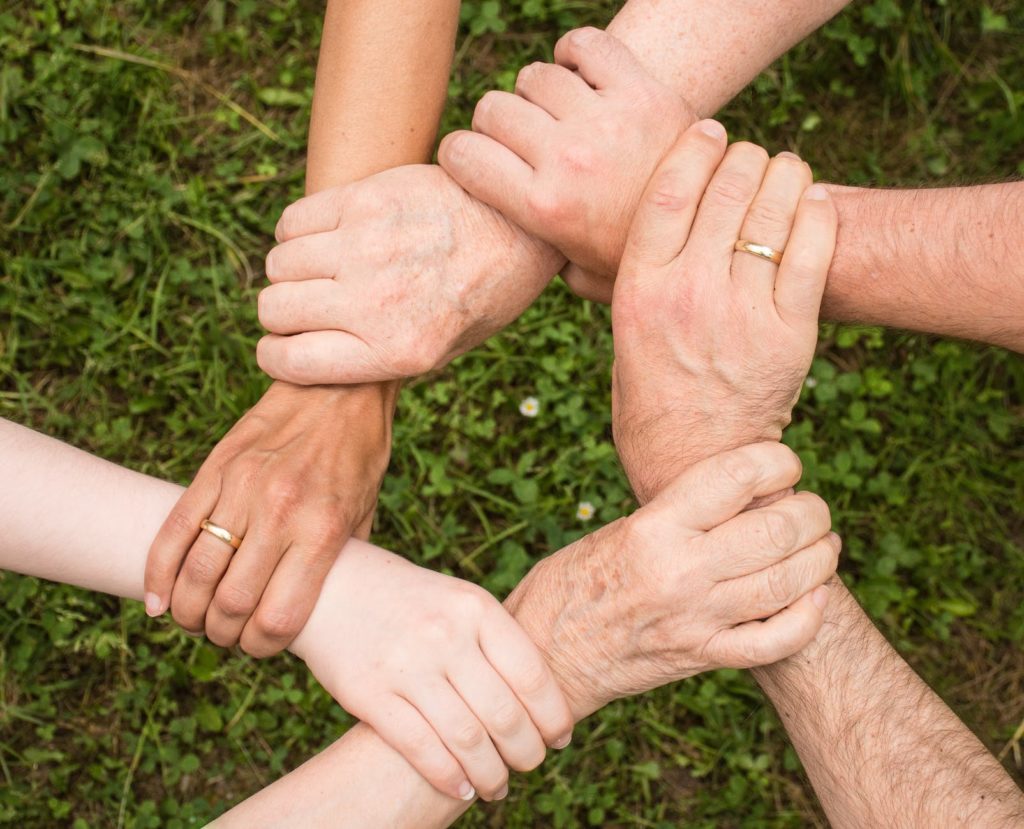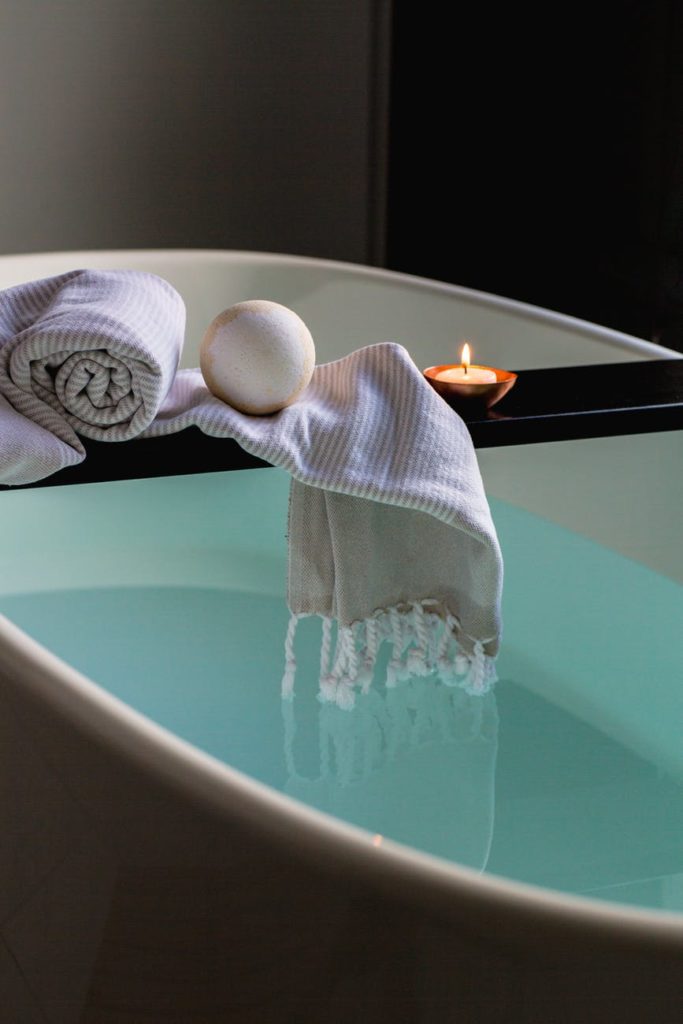Inspiration March 27, 2020
Patience is key.


A habit can form after only one or two repetitions, as many of us might have discovered after our first few cups of coffee, or after our first time eating in front of the TV. So how long does it take to break a habit? If a bad habit can be transformed and implemented that quickly, then that means our brains are entirely capable of changing patterns of behavior – which is all a habit truly is. That’s good news because it means that breaking your bad habit is absolutely possible.
A wake-up time before 11 am used to sound like torture to me and snoozing my alarm felt like sweet heaven. I’ve slowly started waking up at 7 am each day (with some exceptions of course). Eventually, I started waking up feeling chirpier and chirpier with each sunrise.
The process of breaking this habit was painful. But I did it! Be kind and patient with yourself, practice determination, and it will get better.
UCL Psychologist Philippa Lally suggests in her study that it only takes 66 days, to break a habit. However, for 95% of the people examined in the study, breaking the habit could actually take anywhere from 18 to 254 days.
Habits exist on a spectrum based on every individual’s differing ability to control them, according to Psychology Today. We all have different levels of self-control, different environmental factors, different genetic makeup, and more. Unfortunately, there is no set time frame for every single human in which a habit can be broken.
The below tips and steps may help to make the process of breaking a habit – however long, painful, or frustrating – just a little easier.

Understanding the origin of our bad habits is a great first step to making a change.
Habits are the result of our brains automating responses after patterns of behavior, Headspace says. So after eating dinner on the couch in front of the TV, the next day when we spot the comfy couch across from the TV after a long day of work, our brain will put two and two together.
Let’s say you were in a bad mood and digging into a pint of ice cream made you feel better. The next time you feel sad, your brain will automate a response – dig into the ice cream again. The trickiest part about this is we can justify it with some logic: it worked last time!
We are most susceptible to bad habits in a vulnerable and emotional state. Stress is one of the more common emotional triggers that spark bad habits. It makes those patterns tougher to disrupt, especially if the bad habit is entangled with pleasure. For example, drugs or porn activate the pleasure center of the brain, according to Psychology Today. This pleasure feels like a direct reward, perhaps the exact relief or comfort we might be looking for in a state of stress. And, because it feels so great, the behavior of the habit becomes all the more tempting.
In combating that temptation, the tool of mindfulness can be a helpful resource. According to Headspace, once a habit is formed, “the making part of your brain goes into a sleep-like state.”
Mindfulness activates the prefrontal cortex of the brain, the same part of the brain that “sleeps” during a bad habit. This part of the brain is also associated with decision making and focus.


According to this study, mindfulness as a method to quit smoking was twice as effective as the American Lung Association’s proposed methods. Mindfulness heightens our awareness of our emotions and present state of being, it can help to “wake up” the brain.
This tool can help to initially identify that a habit is actually bad, instead of pleasurable. It can be as simple as asking yourself a question – “Why am I smoking? Why am I sleeping in?” That self-awareness can lead to more discovery: “What am I trying to resolve by doing this?”
Once you are aware of the effect that your habit will have on your overall emotions and state of being, you can start to change that cycle.


After a few friends of mine realized we were too attached to our phones, we organized weekly dinners with designated no-screen time. We would all keep our phones turned off in the center of the table, and the rule was, whoever instinctively grabbed for their phone first had to pay for everyone’s food!
It helped not only to know I had a shared struggle with my friends but also to know that they were counting on me during that time to be fully present for them.
Finding a sense of community in the process of breaking a bad habit can be transformational. Not only will it help with those horrible feelings of isolation and helplessness, but it can also increase your accountability. If you have a friend waiting to go on a run with you in the morning, a sober buddy, or even someone wanting a heart to heart, you have more people rooting for you, and counting on you, than just yourself. You don’t have to go through it alone, and you can even make the process enjoyable.
Bad habits have negative consequences – hangovers from drinking, the sluggish feeling of overeating, stress from being late, or just intense feelings of regret, weakness or frustration. In the process of breaking a bad habit, rewarding yourself with good things can be a crucial tool. These rewards can serve as a remedy and a counteraction to those horrible feelings after giving into a bad habit.
I know when I sleep in too late, the chaos of a rushed morning, running out the door while still applying makeup, pulling out my hair in traffic, and of course the anxiety that translates into the rest of my day is consequence enough.
But on the mornings that I’m out of bed nice and early, I like to reward myself by having a long and leisurely shower, full breakfast, or maybe getting a cold brew on my way to work. And I always end up feeling calmer, happier, and more prepared for a productive day, which in itself is a wonderful reward.


Rewards can also be as simple as literally giving your self a pat on the back. Or you could go as big as finding new, healthy, indulgent habits to reward yourself. Maybe after 1 week of staying off caffeine, reward yourself with a massage, a movie night, or a hot bath.


The frustration of never knowing how long it takes to break a habit might be enough to make you want to give up. What worked for me was identifying the negative consequences, small and large, and giving myself some love and rewards after my progress. It takes courage to want to make the change, and you’ve already taken the first step.
Hopefully, these tips can make the whole ordeal much more peaceful, fun, and pain-free. It takes patience and resilience, but that feeling of positive growth is so worth it!